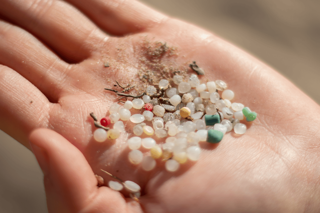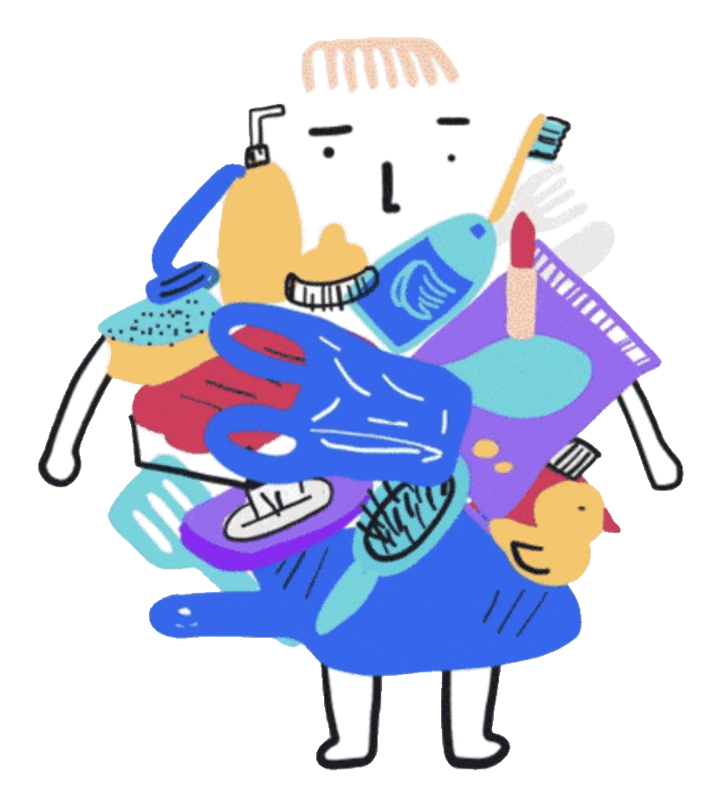Eighty-five per cent of citizens want single-use plastic packaging to disappear completely. This is according to new research by Ipsos commissioned by the World Wildlife Fund (WWF) and the Plastic Free Foundation. Entrepreneurs who abandon packaging or make it more sustainable seem to have tapped into a goldmine – but part of the business community is still deaf and dumb. ‘People are getting fed up with all the plastic in the supermarket.’
So-called single-use plastics are responsible for most of the plastic pollution in the oceans, the plastic soup. The European Union has already taken action. Since 2021, for example, cotton buds, straws and cutlery have been banned and reduction targets for single-use plastic have been set.
Another important negotiation is scheduled this month in Canada’s Ottawa, where negotiators are meeting to prepare a United Nations (UN) plastic treaty. That treaty will apply worldwide.
Deep pockets
In the run-up to the negotiations, tensions are rising. For instance, lobbyists of plastic producers – often big oil companies produce the new or virgin plastic – have been trying for some time to ensure that the treaty will soon have little effect.
“In general, the plastics industry wants to emphasise more recycling rather than less plastic production, as the latter would affect its financial bottom line,” writes Corporate Europe Observatory (CEO). This watchdog sees “a delaying tactic to ensure that the serious problem of plastic pollution is not addressed” because, at the end of the day, many countries still fail to recycle plastic: only 9% of all global plastic is recycled.
In fact, efforts should be made to stop disposable plastic packaging completely, because progress in recycling takes years – and more progress unfortunately does not yet appear possible, Corporate Europe said.
“Very large corporates are putting their foot in the door with countries,” says Plastic Soup Foundation director Maria Westerbos. “You see especially the big oil and plastic-producing industries influencing delegations. This is how they try to get a country to vote in their direction. Countries like Russia and Saudi Arabia vote anyway for ‘clean up more plastic’ and against banning it. That same tactic, by which you thwart real improvement, is also being urged on other countries.”
The Plastic Soup Foundation and other foundations say there is an uneven playing field in the formation of the UN treaty: 143 lobbyists have managed to register themselves for the negotiations. The Plastic Soup Foundation will join dozens of other NGOs in objecting to this conflict of interest at the UN. “The lobby exerts its influence with huge amounts of money,” says Westerbos.
Plastic tired
Citizens want to move in the opposite direction. The WWF survey shows that 90% of respondents want harmful chemicals added to plastic products to be banned globally. Many respondents (87%) also support a ban on the types of plastic that cannot be recycled. 72% think all countries should have access to funding and technology for a transition.
Research institute Ipsos interviewed a total of 24,000 people in 32 countries. “So many respondents in different countries, is a representative survey and shows that there is a broad desire among citizens to stop disposable plastic,” says Westerbos.
She also recognises the sentiment in the Netherlands. “People feel they see too much plastic in the supermarket, and feel that plastic is forced on them. They see the landfills and rivers full of plastic. They are starting to get fed up with that. And on top of that, more and more scientific evidence is becoming available that micro- and nanoplastics are released from disposable plastic, which enter our bodies and threaten our health.”
‘No understanding’
You would expect this public opinion to be well known to manufacturers. Although many companies like to coquette with indications about sustainability – “This product is plastic-free! – a majority fail to take the first steps towards sustainability. This is according to another new survey released this month.
According to the CDP foundation, which runs a global monitoring system with information around sustainability, 42% of companies have identified where the plastic used in their business comes from. That means more than half lag behind. This is also the case in other areas: only 21% of companies are aware of risks around plastic and only 30% have mapped the impact of their pursuits on the environment.
CDP speaks of “significant gaps in business understanding and actions”.
The organisation points out that companies themselves benefit from reducing plastic consumption: half of G20 countries have already implemented measures, and multinationals will increasingly face mandatory provisions and laws – especially if the UN comes up with a treaty.
“There is a mega-market for plastic-free products,” says Westerbos. “Business has to watch its step. Consumers are getting angry.”
A number of companies with a combined market value of $270 billion, including Unilever, have called for a system of measurable data to stop plastic pollution.



